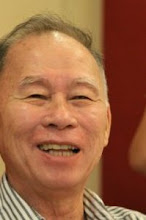HERE WE GO AGAIN
The worsening chronic traffic gridlock is just one of the
many problems waiting to be untangled by the Duterte administration. A year and
a half is not enough to produce any palpable improvement in this area. But
people are also waiting for new ideas and some movement in the implementation
of projects that will improve mass transportation facilities.
It’s not enough to hold accountable those behind the
disaster that is the Metro Rail Transit 3 and those whose managerial
failures contributed to driving the electorate to embrace Rodrigo Duterte in
2016.
We need to fast-track the implementation of transportation
infrastructure. Malacañang seems to have given up on seeking emergency powers
from Congress to deal with the traffic mess. But President Duterte can lean on
his super majority to quickly pass certain laws or amendments, such as in
government procurement, to facilitate project implementation, simplify
procedures and ensure reasonable quality rather than the lowest price in
bidding requirements.
Better infrastructure is needed everywhere, from airports
and sea ports to roads, bridges and telecommunications as well as in tourism
facilities.
Let’s admit it – the drug menace and narco politics are
genuinely serious problems that are undermining democracy and aggravating
corruption.
But there are also many other problems calling for official
attention, from deteriorating quality of education to inadequate public health
care and enormous red tape. Marawi needs massive rehabilitation, and the nation
faces a serious threat of terrorism that may spread nationwide.
An increasing concern is whether the administration can
focus on dealing with these problems when the Chief Executive appears
distracted by brawls with his political opponents.
With his still immense popularity, President Duterte can achieve
so much. He was borne to power by perceptions of being an action man, in
contrast to his predecessor. People brushed aside early warnings from his
opponents that Dirty Rody could ignore the law, due process and certain civil
liberties to get things done; voters gave him the imprimatur to just do it.
With that kind of mandate, and with the opposition in
Congress reduced to the size of an amoeba, the President should still be able
to get a lot of reforms done. His Tokhang and Double Barrel have also generated
a powerful fear factor that could enable him to compel even local government
executives who think they run independent republics to go along with his reform
agenda.
The President is not yet even midway through his term, and
the surveys indicate that he continues to enjoy widespread public support.
Rodrigo Duterte promised voters real change. With fewer
distractions and proper focus, he can still deliver on his promise.
Looking at all the above headaches for DU30,
it appears that his administration should pay particular attention to the
traffic gridlock. After all it’s a problem that he inherited but which also
gave him the presidency in 2016.
A mass transit system similar to Tokyo’s highly efficient
rail system cannot be operationalised from scratch within a president’s 6 year
term. If his continuing high ratings still cannot dent the traffic gridlock, he
should at least be able to get NEDA, which is run by people appointed by the
incumbernt president, to adopt a long range PHILIPPINE DEVELOPMENT PLAN which should allow our country to adopt a
framework of inclusive high growth. With good governance and anticorruption as
the overarching theme of each and every intervention, the Plan should translate
into specific goals, objectives, strategies, programs and projects all the
things that we want to accomplish in the long term.
The Philippine Development Plan will serve as our guide in
formulating policies and implementing development programs for at least the
next twelve years. It should enable us to work systematically to give the
Filipino people a better chance of finally finding their way out of poverty,
inequality, and the poor state of human development.
But it seems he is already losing focus, distracted by the
intramurals he is facing.



